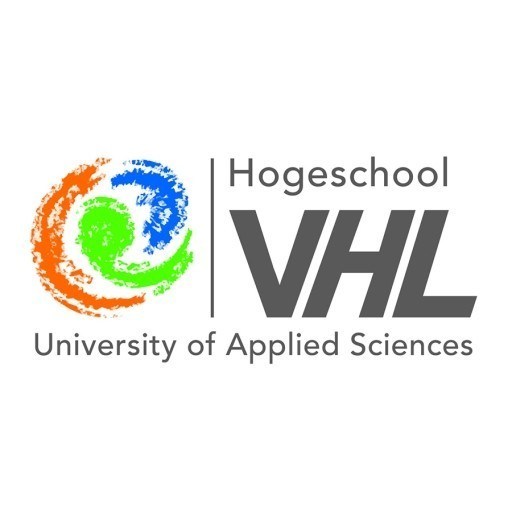Photos of university
Agricultural Engineering at the University of Campinas is a comprehensive undergraduate program designed to prepare students for innovative solutions in the agricultural sector. The curriculum integrates fundamental engineering principles with specialized knowledge in agriculture, aiming to develop professionals capable of addressing the complex challenges faced by modern farming and food production systems. Throughout the course, students will explore areas such as soil and water management, machinery and equipment, agro-industrial processes, and sustainable agricultural practices. Emphasizing both theoretical understanding and practical skills, the program offers laboratories, fieldwork, and industry internships to ensure hands-on experience. Graduates of this program will be equipped with the technical proficiency and critical thinking necessary for roles in agricultural development, resource management, and technological innovation. The program also promotes an understanding of environmental impacts and sustainability, aligning with global efforts towards eco-friendly food production. Interdisciplinary collaborations are encouraged, allowing students to work with experts from biology, environmental sciences, and engineering to develop integrated solutions. With a focus on sustainability, efficiency, and technological advancement, the Agricultural Engineering program at the University of Campinas aims to cultivate professionals who can contribute to the enhancement of agricultural productivity and rural development. Students will gain a solid foundation in design, operation, and maintenance of agricultural systems, preparing them for successful careers in research, consultancy, industry, or entrepreneurship within the agricultural sector. The university provides modern facilities, expert faculty, and a vibrant academic community to support students throughout their educational journey. Graduates will be well-positioned to meet the demands of an evolving industry, fostering innovations that promote sustainable agriculture and improve food security worldwide.
Major Area: Agricultural Structures and Environment
Lines of Research
- 1. Environment in agricultural facilities
- 2. Energy sources and technologies for agriculture
- 3. Building technology and materials
Major Area: Agricultural Machinery
Lines of Research
- 1. Evaluation and uses of machinery
- 2. Design, development and use of machinery
Major Area: Postharvest Technology
Lines of Research
- 1. Storing and selling agricultural produce
- 2. Drying agricultural produce
Major Area: Sustainable Rural Planning and Development
Lines of Research
- 1. Geotechnologies applied to the monitoring of agricultural land and harvest forecasting
- 2. Decision support systems
Major Areas: Soil and Water
Lines of Research
- 1. Management, treatment and use of water and residues
- 2. Planning and managing water resources
- 3. Soil planning, handling, conservation and recovery
- 4. Irrigation technology
Major Area: Agricultural Structures and Environment
Lines of Research
- 1. Building technology and materials
To be eligible for admission as a degree-seeking graduate student (i.e., masters or doctoral programs), students must hold a university degree. Admission to graduate programs is subject to course-specific standards and requirements, which vary from one field to another. In order to find out these requirements, the student must get in touch with the specific department and request admission information (selection procedures, deadlines, etc). In general, applicants are evaluated by means of a written exam, a study plan and personal interviews.
Foreign students have their requests and documents initially reviewed by the Graduate Program Coordinator of the program he/she is interested. If accepted, a letter of conditional acceptance at the university will be issued and emailed to the student with a digital certification. This will enable the student to apply for a student visa, required for class registration upon arrival. You should not try to come on a tourist visa: A change of visa status after entering Brazil is not possible.
The Agricultural Engineering program at the University of Campinas offers a variety of financing options to support students throughout their academic journey. Funding opportunities include government-sponsored scholarships, university-specific grants, and financial aid programs designed to make higher education accessible and affordable. The Brazilian national government provides several scholarship programs, such as the Bolsa Permanência, which supports students from low-income backgrounds by covering tuition fees and providing a stipend for living expenses. Additionally, the university participates in federal initiatives like ProUni, which grants scholarships for students who meet specific socioeconomic criteria, reducing the financial burden of tuition and associated costs.
The University of Campinas also offers institutional scholarships based on academic merit, research involvement, or extracurricular achievements, encouraging student engagement and recognizing academic excellence. These scholarships may cover partial or full tuition fees and are often awarded through competitive selection processes. For students interested in research and teaching assistantship roles, the university provides paid positions that allow students to gain practical experience while funding their studies. Furthermore, external funding agencies, including national research councils and private foundations, occasionally offer grants and sponsorship opportunities for students undertaking research projects within the Agricultural Engineering program.
In addition to scholarships and grants, students can explore student loan options, both through federal programs and private lenders, which offer manageable repayment plans to support longer-term financing of their studies. The university's financial services department provides guidance and assistance to help students identify suitable financing options and navigate application procedures. The program's diverse range of funding sources aims to reduce financial barriers, enabling talented students from various socio-economic backgrounds to pursue an education in Agricultural Engineering at the University of Campinas, thereby fostering a diverse and inclusive academic community dedicated to advancing agricultural innovation and sustainability.
The Agricultural Engineering program at the University of Campinas (Unicamp) is a comprehensive undergraduate degree focused on the application of engineering principles to agricultural production and resource management. This program aims to develop professionals capable of designing, implementing, and managing technological solutions that enhance the efficiency and sustainability of agricultural systems. Students are exposed to a multidisciplinary curriculum that integrates areas such as soil science, plant science, machinery, irrigation and drainage, agroindustry, environmental management, and rural development. The program emphasizes practical training through laboratories, fieldwork, and internships, providing students with hands-on experience essential for addressing real-world challenges in agriculture.
The university's facility infrastructure supports this practical approach, offering state-of-the-art laboratories equipped for testing soil and water quality, machinery operation, and agrochemical analysis. It also provides access to modern farms and experimental stations which serve as sites for applied research and field studies. The curriculum is designed to be interdisciplinary, encouraging collaboration with other departments and research groups within the university, fostering innovation and comprehensive problem-solving skills. Students are prepared to work in various sectors, including farm management, agricultural machinery manufacturing, environmental consultancy, and policy development.
The program also promotes sustainable practices and the use of environmentally friendly technology to meet the increasing demand for food production while maintaining ecological balance. Research opportunities are abundant, with faculty engaged in cutting-edge projects related to renewable energy in agriculture, precision farming technologies, and sustainable resource use. Graduates of Agricultural Engineering from Unicamp are recognized for their technical expertise, critical thinking, and ability to adapt to evolving technological landscapes.
Throughout the course, students have access to support services such as academic advising, professional development workshops, and career placement programs. The program aims to prepare students not only to excel technically but also to develop a global perspective on agricultural challenges, promoting innovation that benefits society and the environment. The university's extensive network of collaborations with industry, government agencies, and research centers further enriches the educational experience, creating numerous opportunities for internships, research projects, and employment after graduation. Overall, the Agricultural Engineering program at Unicamp is dedicated to training competent, responsible, and innovative engineers capable of contributing significantly to the agricultural sector and sustainable development initiatives.










